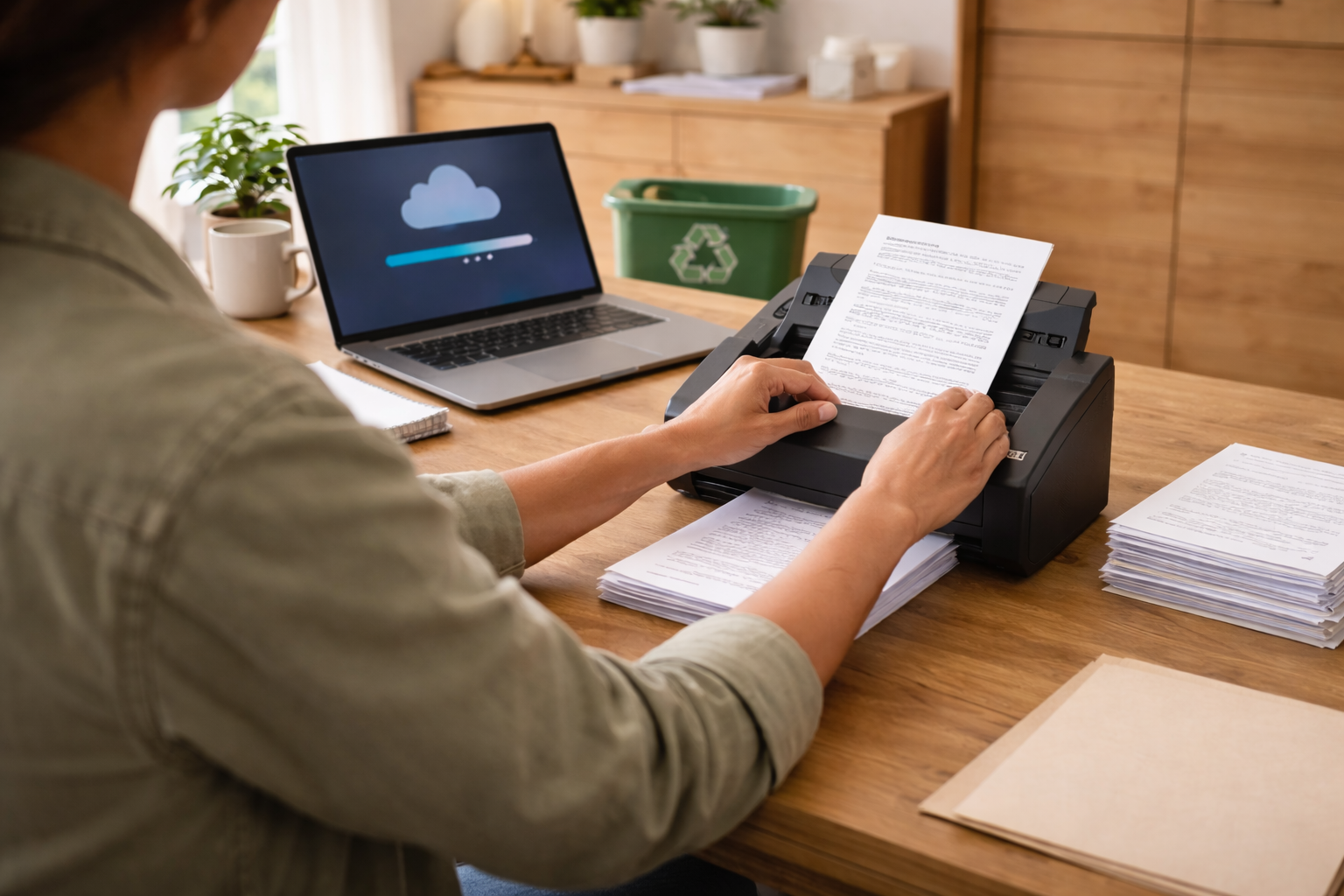Picture this: One day you go to turn your computer on, only to find that all the data you’ve cherished for years is suddenly inaccessible. Unfortunately, in today’s digitally-focused world, this scenario is all too common. That’s why everyone should be backing up their data using an external hard drive or the Cloud. Backing up your data can save you from financial trouble, panic, and even heartache if unexpected technical failure occurs. It also protects your files from cyberattacks, which increased 40% globally in 2021 alone.
Read on to learn why it’s so important to back up your data and how you can do this using trusted data backup solutions.
Why is backing up your data so important?

Imagine losing your entire movie library—and all the rest of your data—just because you spilled soda on your laptop. With regularly scheduled backups at up to 940 Mbps, this nightmare doesn’t have to be your reality. But a common incident like this can become a disaster if you aren’t regularly synching all your photos, videos, text files, and any other important data to an external hard drive. Luckily, it’s easy to avoid a crisis by backing up your data.
Speed may not be available in your area.
Dropping your laptop or phone can also cause data loss. Theft is another major issue that not only cuts you off from your data but puts your security at risk. Backing up your data through a secure and trusted Cloud storage service can help mitigate this risk.
But accidents and theft aren’t all you have to worry about. Although they’re usually aimed at businesses, ransomware attacks should be on the radar for any internet user these days. These attacks involve a third party compromising your machine and holding your data hostage, with the promise that they’ll “unlock” it when you pay a fee. However, if your data is backed up to an external hard drive or to the Cloud, the impact of these potentially devastating attacks can be minimized substantially.
What are the best data backup solutions for common devices?

Fortunately, most phone and computer manufacturers are well-aware of the dangers of data loss these days. Many companies, such as Apple, make it easy to back up your data through their own Cloud platforms.
Backing up data on your phone
If you have an iPhone, the natural data backup choice is iCloud. Since almost every Apple device is pre-loaded with it, it only takes minutes to sign up. Then, synching all your photos, videos, and other data to the Cloud is easy. You can set your phone to schedule regular backups, so you don’t have to set an alarm. You won’t lose your precious data if you drop or lose your phone, and your data will even be safe from common phone scams and cybercrime. And as an added bonus, you can access iCloud on your MacBook and other Apple devices. This means you can seamlessly browse photos, videos, and more across all your devices without switching files around the old-fashioned way.
Android users can get the same peace of mind and security from iDrive.
Backing up data on your laptop or desktop
As mentioned above, if you’re using an Apple laptop or desktop, you can synch all your data to iCloud. You also have the option of using an external hard drive for an extra layer of security. However, you probably don’t want to have this clunky device plugged into your machine all the time. So be sure to set a reminder or alarm for your regular external hard drive backups. Depending on how much data you produce, you should consider weekly or monthly backups using this layered security method.
If your main concern is storing photos, Google Photos offers free storage of up to 32GB of photos (in regular quality, which they define as “up to 16 megapixels). Other plans are available for high quality photo storage.
OneDrive is an excellent Cloud storage option for documents, especially if you use Microsoft apps. Many students prefer it since it makes secure file transfer easy between professors and peers. Google Docs is another great choice that offers easy collaboration along with most of the functions of Microsoft Word. By using Google Docs or One Drive as your data backup solution, you can store all your documents online without worrying about losing them if your hardware is damaged.
More bandwidth = faster backup
If your family takes a ton of photos, or records precious memories through video all the time, you may want to consider a high-speed fiber internet plan. High gig speed means more bandwidth. And the more bandwidth you have, the faster you can back up your data. You won’t have to worry about your regularly scheduled backups interfering with your leisure time. You’ll have the freedom to stream, hold video calls, game, and more—all while backing up data out of sight, out of mind.
Don’t slip up when it comes to backing up data

Data backup and recovery should always be taken seriously. Be sure to come up with a solid data backup plan before disaster strikes. Otherwise, you may find yourself at a loss when it comes time to turn in your big assignment or submit that quarterly report you’ve been working on for months.
To learn more about data backup and other security best practices, be sure to follow the Quantum Fiber blog. And don’t forget to set a timer for your manual backups if you aren’t connected to the Cloud!








